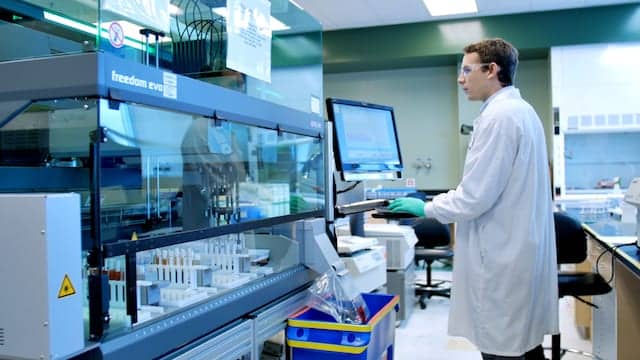A large clinical experience study has evaluated the performance of the Panorama noninvasive prenatal test (NIPT) from Natera Inc, San Carlos, Calif.1
The study retrospectively analyzed the performance of the single-nucleotide polymorphism (SNP)-based NIPT in 80,449 referrals for 22q11.2 deletion syndrome, and 42,326 referrals for 1p36, Angelman, cri-du-chat, and Prader-Willi microdeletion syndromes over a 1-year period.
Microdeletions are tiny missing pieces of DNA at the subchromosomal level that can have serious health implications. The original Panorama screening protocol was compared with an enhanced protocol aimed at achieving fewer false-positive calls. The prevalence of the microdeletion syndromes also was estimated in the referral population.
“This study reflects Natera’s ongoing commitment to advancing the science and technology of genetic testing in the prenatal setting,” says Kimberly Martin, MD, senior medical director of Natera and lead author on the study. “This large, population-based cohort study establishes that these important microdeletions are relatively common, and the superior performance of a SNP-based NIPT has been further improved by the revised protocol aimed at fewer false positives. The positive predictive values and low false-positive rates achieved in this study build upon previous clinical research that supports the use of Panorama as a first-line screen in the general population.”
With the revised protocol, the positive predictive values increased to 44.2% for 22q11.2 deletion syndrome and 31.7% for the other four disorders combined. The false-positive rate for 22q11.2 deletion syndrome decreased to 0.07% with the revised protocol. Similarly, the false-positive rate for the other four disorders combined decreased to 0.07%.
The prevalence in the referral population was estimated to be 1 in 1,255 for 22q11.2 deletion syndrome and 1 in 1,464 for 1p36, Angelman, and cri-du-chat microdeletion syndromes combined. The combined estimated prevalence for all five disorders was 1 in 676.
“Not only does this SNP-based NIPT allow us to screen for whole-chromosome imbalances more effectively than was previously possible, but it also allows us to now screen for additional clinically important disorders,” says study author Peter Benn, PhD, professor of genetics and genome sciences and director of the diagnostic human genetics laboratories at the University of Connecticut Health Center. “This is a major advance in prenatal screening. Women with high-risk pregnancies can be referred for full diagnostic testing. Early diagnosis can facilitate delivery and treatment at a tertiary care center, and can help reduce morbidity.”
Unlike Down syndrome, the risk for microdeletions is not age-dependent. For women under 28 years of age, the combined incidence of the five microdeletions that Natera screens for (~1/1,000) is higher than for Down syndrome. Early diagnosis of 22q11.2 deletion syndrome has important clinical implications, such as administering neonatal calcium in cases of hypocalcemia to reduce the risk of intellectual decline, and cardiac surgery to correct congenital heart defects.
For more information, visit Natera.
REFERENCE
- Martin K, Iyengar S, Kalyan A, et al. Clinical experience with a single-nucleotide polymorphism-based noninvasive prenatal test for five clinically significant microdeletions. Clin Genet. Published online in advance, July 11, 2017; doi: 10.1111/cge.13098.






